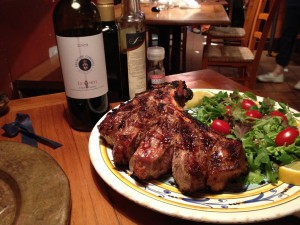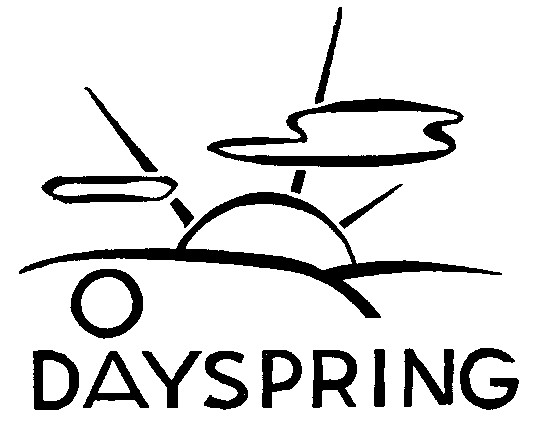 I had a note from a reader about the need to do penance on this coming Friday, which is the Octave of Christmas.
I had a note from a reader about the need to do penance on this coming Friday, which is the Octave of Christmas.
The short answer is NO.
Why? Because according to Canon Law, Catholics are bound to do penance on Fridays of the year except when the Friday is of the liturgical rank of a “Solemnity” (a new-fangled post-Conciliar rank). Even if you prefer the traditional calendar, wherein 1 January is the Octave of Christmas (olim Circumcision), you can avail yourself of the law as it is here and now in the 1983 Code. In the new-fangled calendar, 1 January is the Solemnity of Mary, Mother of God. As a Solemnity it takes away the obligation of penance on Friday.
HOWEVER… that will not be the case for every Friday in the Octave of Christmas. THIS YEAR, the Friday is the Octave and it is 1 January. This year.
NB: The Octave of Christmas does not have the liturgical “weight” of the Octave of Easter. Easter Friday outweighs the penance thing, but Christmas Friday does not.
Note can. 1251 in the 1983 Code.
Can. 1251 Abstinence from meat, or from some other food as determined by the Episcopal Conference, is to be observed on all Fridays, unless a solemnity should fall on a Friday. Abstinence and fasting are to be observed on Ash Wednesday and Good Friday.
Friday in the Octave of Christmas is not a liturgical solemnity as it is in the Easter Octave. Hence, we are usually obliged to do penance today, Friday in the Octave. Not in 2020.
Remember, you can ask your parish priest to dispense you or commute acts of penance.
Can. 1245 Without prejudice to the right of diocesan bishops mentioned in can. 87, for a just cause and according to the prescripts of the diocesan bishop, a pastor [parish priest] can grant in individual cases a dispensation from the obligation of observing a feast day or a day of penance or can grant a commutation of the obligation into other pious works. A superior of a religious institute or society of apostolic life, if they are clerical and of pontifical right, can also do this in regard to his own subjects and others living in the house day and night.
Members of religious communities and third orders should consult their own regulations and review to whom they turn for dispensations.
Also, you can substitute another form of penance for abstaining from meat. Make it penitential, however. Abstinence from meat has good reasoning behind it. For some, however, there abstinence from other things can be of greater spiritual effect.
Also, it may be that some local places have exceptions in their calendars. For example, if some year Friday falls on Holy Innocents, or St. Thomas Becket, and you belong to Holy Innocents parish or St. Thomas Becket parish, then Friday will be your patronal feast.
Also, perhaps your conference of bishops made another ruling. I believe that is the case for England and Wales.
































I observe the Friday abstinence even though I don’t see it as much of a penance. We eat fish a lot, eggplant stew (ratatouille), and other non-meat dishes any day of the week. As a Friday penance I give up computer games, which frees up half an hour or so for more useful works. That’s actually something of a sacrifice.
I’m unclear as to whether prayer or scriptural reading is considered “penance” in the same way sacrifices are. Are prayers and religious readings considered penances?
The US Conference of Bishops removed the obligation to abstain from meat on Fridays but emphasized that some sort of penance chosen by the person should be performed on Fridays. They give examples in this Pastoral Letter.
“25. Every Catholic Christian understands that the fast and abstinence regulations admit of change, unlike the commandments and precepts of that unchanging divine moral law which the Church must today and always defend as immutable. This said, we emphasize that our people are henceforth free from the obligation traditionally binding under pain of sin in what pertains to Friday abstinence,except as noted above for Lent We stress this so that “no”scrupulosity will enter into examinations of conscience,confessions, or personal decisions on this point.”
Link
[Yeah… because that’ll work. The bishops have collectively for decades been squandering their moral capital. People are not going to pay attention to something like that. “free from the obligation traditionally binding under pain of sin”. That’s what happened with the Novus Ordo, too, and the removal of the Praenotanda with emphasis on the fact that the priest commits MORTAL SINS if he screws around with the Mass. Once that was gone from the book, all hell broke loose.]
It’s a bit of a late notice — but Catholic Answers is closing down their forums forever, as of midnight on New Year’s Eve. If you click on your profile and Activity, you can find a link to “Download All” and save all your posts as a .zip file.
I’m gonna miss that place.
jhayes, I think that text you cited does not mean what you think it means.
the 1983 Code of Canon law has this:
“Can. 1249 The divine law binds all the Christian faithful to do penance each in his or her own way. … ”
“Can. 1250 The penitential days and times in the universal Church are every Friday of the whole year and the season of Lent.
Can. 1251 Abstinence from meat, or from some other food as determined by the Episcopal Conference, is to be observed on all Fridays, unless a solemnity should fall on a Friday. Abstinence and fasting are to be observed on Ash Wednesday and Good Friday.
Can. 1252 The law of abstinence binds those who have completed their fourteenth year. The law of fasting binds those who have attained their majority, until the beginning of their sixtieth year. Pastors of souls and parents are to ensure that even those who by reason of their age are not bound by the law of fasting and abstinence, are taught the true meaning of penance.”
Canon Law has precedence here, and it certainly expresses itself in terms of obligation and binding force.
“Can. 1253 The conference of bishops can determine more precisely the observance of fast and abstinence as well as substitute other forms of penance, especially works of charity and exercises of piety, in whole or in part, for abstinence and fast.”
Canon 1253 addresses what an episcopal conference can do in this matter. They can determine more precisely the observance of the fast and abstinence, but cannot do away with it altogether , since it is of divine law.
Further, they can substitute other forms of penance for fast and abstinence, but they cannot remove fast and abstinence altogether.
Fr Kelly,
I understand the USCCB Pastoral Letter as saying that you still need to do penance on Fridays but that you can choose for yourself whether to abstain from meat or to do “works of charity and exercises of piety” (they give examples in the Letter) I believe that is consistent with Canon 1253
“24. Among the works of voluntary self-denial and personal penance which we especially commend to our people for the future observance of Friday, even though we hereby terminate the traditional law of abstinence binding under pain of sin, as the sole prescribed means of observing Friday, we give first place to abstinence from flesh meat.We do so in the hope that the Catholic community will ordinarily continue to abstain from meat by free choice as formerly we did in obedience to Church law. Our expectation is based on the following considerations…”
27. It would bring great glory to God and good to souls if Fridays found our people doing volunteer work in hospitals, visiting the sick, serving the needs of the aged and the lonely, instructing the young in the Faith, participating as Christians in community affairs, and meeting our obligations to our families, our friends,our neighbors, and our community, including our parishes, with a special zeal born of the desire to add the merit of penance to the other virtues exercised in good works born of living faith.
28. In summary, let it not be said that by this action, implementing the spirit of renewal coming out of the Council, we have abolished Friday, repudiated the holy traditions of our fathers, or diminished the insistence of the Church on the fact of sin and the need for penance. Rather, let it be proved by the spirit in which we enter upon prayer and penance, not excluding fast and abstinence freely chosen, that these present decisions and recommendations of this conference of bishops will herald a new birth of loving faith and more profound penitential conversion, by both of which we become one with Christ, mature sons of God, and servants of God’s people.
When the Bishops of England and Wales went back to the traditional practice of requiring abstinence from meat on Fridays, they published a Q & A clarifying that “Failure to abstain from meat on a particular Friday then would not constitute a sin.”
“Q11. Are the Bishops placing a greater obligation on Catholics in England and Wales? Apart from the exceptions above, will it be a ‘sin’ to eat meat on a Friday after the Bishops’ decision takes effect in September?
A. The obligation on Catholics in England and Wales to do penance on a Friday will be the same after Friday 16 September 2011 as it was before that date. The only change is that the Bishops have determined that the requirement by all the faithful to do penance on a Friday will be fulfilled by abstaining from meat. When asked a similar question to this, the Holy See replied that the ‘gravity’ of the obligation applies to our intention to observe penance as a regular and necessary part of our spiritual lives as a whole.*
Therefore, the ‘gravity’ of the obligation does not relate to observing the specific act of penance (abstaining from meat) prescribed by the Conference of Bishops. The ‘gravity’ of the obligation applies to the intention to do penance during the prescribed penitential days and seasons of the Church’s year**. Failure to abstain from meat on a particular Friday then would not constitute a sin
Link
*The “substantial observance” of the penitential discipline of Fridays and Ash Wednesday, Pope Paul VI wrote, “binds gravely.” Interpreting this statement authoritatively, the Sacred Congregation of the Council (now the Congregation for the Clergy) decreed that this grave obligation does not refer to the individual days of penance, but to “the whole complexus of penitential days to be observed… that is, one sins gravely against the law, who, without an excusable cause, omits a notable part, quantitative or qualitative, of the penitential observance which is prescribed as a whole (February 24, 1967; reprinted in Canon Law Digest, vol. 6, pp. 684-85).
**Apostolic Constitution, Paenitemini, Pope Paul VI